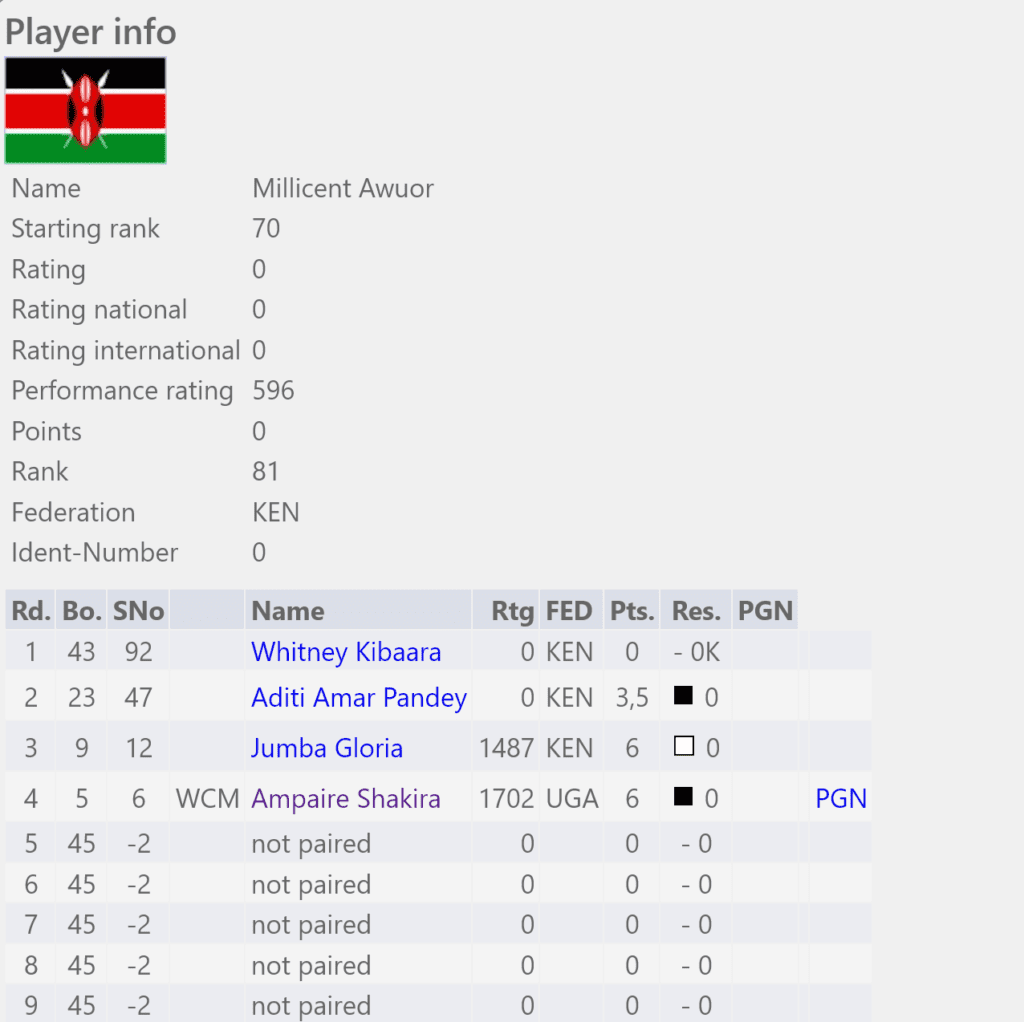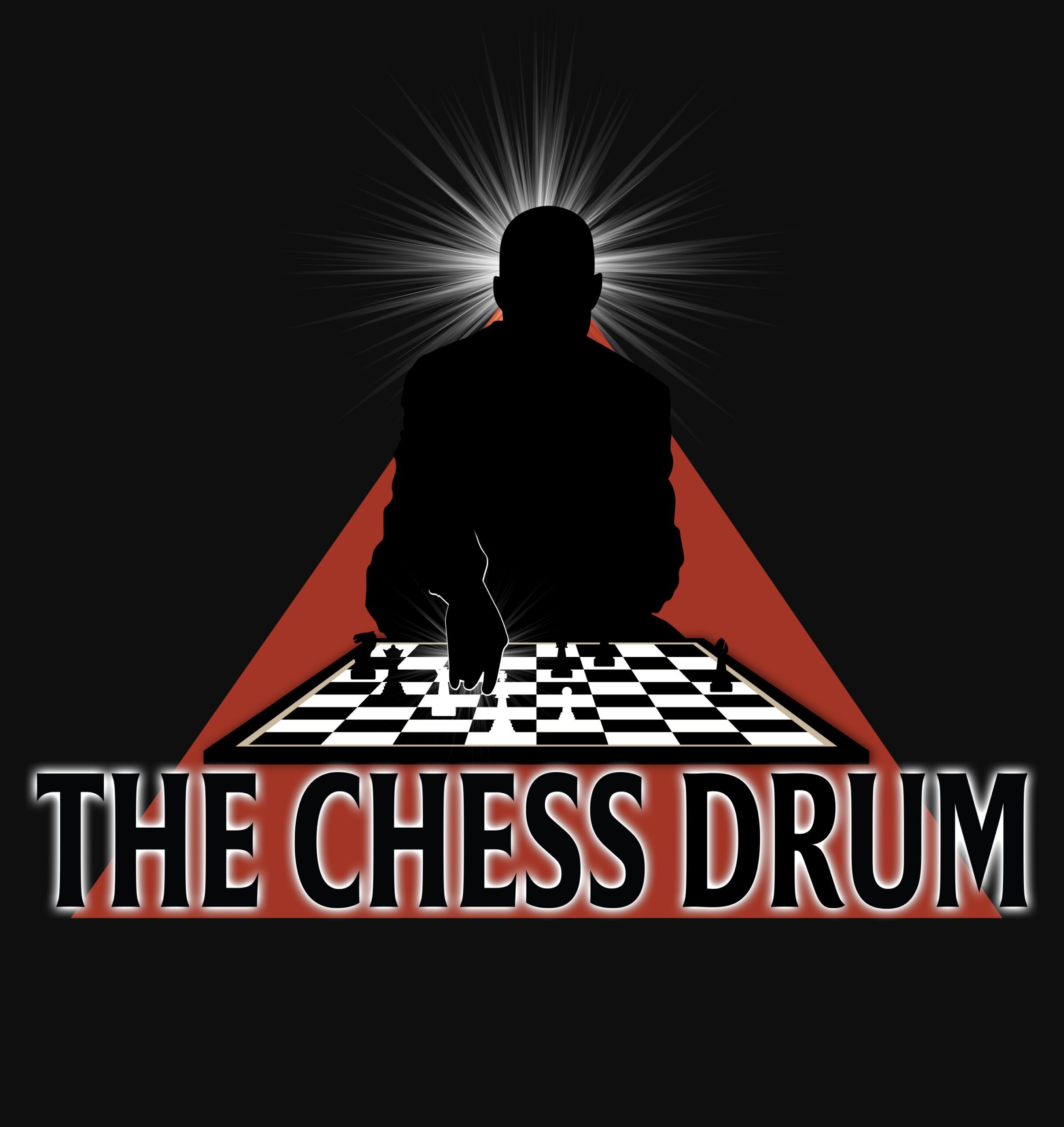Chess Player banned for impersonating a woman
At the Kenya Open, something unique happened when a man was caught impersonating a woman in the women’s section. Registered as unrated Millicent Awuor, he was wearing a hijab (head & shoulder covering) typical of a Muslim woman with a niqaab (face covering). Of course, we have heard of the hijab going viral in the chess world before.
After beating a former Kenyan champion (Gloria Jumba) and Uganda’s top player (Shakira Ampaire), many initially wondered why they had never heard of her in important national events. Who was this Muslim woman? Was she a long-retired chess veteran?

Who was this outstanding mystery player Millicent Owuor?
Photo by Chess Kenya
According to Victor Otieno of Nation Media Group, it turns out that the player was Stanley Omondi a male university student with a 1499 FIDE rating. Other players and tournament officials started to draw suspicions when he never spoke to anyone or interacted with the other players. They also noticed some peculiar mannerisms and a strange gait for a woman.
After the official finally confronted him, they asked him to produce an identification, after which he confessed to the ruse. He cited the 500,000KSh (approximately US$3800) as the incentive as he was struggling with his student expenses. He was immediately expelled from the tournament. His results were reversed. The news of a male chess player impersonating a woman is novel and has gone viral.
Stanley Omondi‘s ruse was uncovered… literally!
Photo by Chess Kenya
“The reason was due to financial needs but I deeply regret my action and [am] ready to accept all consequences.”
~Stanley Omondi
It is interesting that while he was not the top woman player there was no “stereotype threat” since they thought he was a woman. Stereotype threat in chess is the idea that women may approach the game differently when facing a man. This incident brings about all types of discussions. One basic question is whether a man should be able to play in the women’s section. Right now the answer is “no” unless the man is technically a transgender woman.
There were comments about what would happen if a man indeed began to identify as a woman. Would it be a problem if a 2700 male Grandmaster became a transgender woman and began to dominate every event? In the past few years, federations have had to deal with this question. The U.S. Chess Federation’s transgender policy allows one such gender change. There is one such player in the U.S. who actually had the operation and now competes as a woman.

Brief Discussion on Gender
While this case wasn’t a matter of a man genuinely claiming to be a woman, it is an issue that is being discussed in different sports. Transgender women (born male) competing with women is clearly questionable when physical strength plays a factor in competition. What about chess? Most will say that gender doesn’t matter in chess because it isn’t a physical sport. However, one can make the argument that testosterone makes men more aggressive in general, and this could also be true in how they approach chess.
The gender gap between men and women chess players remains constant, but girls and women have shown increased activity. Yet there is still a precipitous dropout rate of girls. Do men have an inherent advantage in games given their fighting instinct? Men play at higher levels (on average) in chess, shogi, xiangqi, go, draughts, and even bridge. Why? The “participation approach” (more men play) has been critiqued as dubious. Is there any validity to the “Fighting Chess Index” seen in Dr. David Smerdon’s report?
“We don’t know whether or how biological differences in the population work in chess.”
~Dr. David Smerdon, Australian Grandmaster
Some of the variances can be explained given the gender differences in the social importance placed on games. In this “hijab” case, it was a situation of a needy student who was enticed by the lucrative prize fund. There was no way this 1499 Elo player was going to win a tournament with seven Grandmasters but may have had a chance at winning one of the ten cash prizes in the women’s section.
Millicent Owuor doesn’t exist, but this name will now live on forever. False identity cases are prevalent in online chess where a strong player may play on a friend’s account. Let us hope that players spend more time working on their chess skills than ways of cheating the system.
Note: Josefine Heinemann won the women’s section with 9/9 while the Egyptian sisters Shrook and Shahenda Wafa were second with 7.5/9. The open section drew several foreign GMs including blindfold king Timur Gareyeev, who won the tournament with 8.5/9. Eltaj Safarli of Azerbaijan was second on 8/9.
Open: https://chess-results.com/tnr738823.aspx?lan=1&art=1&rd=9&turdet=YES&flag=30
Women: https://chess-results.com/tnr747928.aspx?lan=1&art=1&rd=9&turdet=YES&flag=30




This is a hot topic on African WhatsApp groups. Everyone is waiting to see what the punishment will be.
Daaim, I disagree chess is not a physical sport. There is certainly a physical element to chess, especially classical OTB chess (increased heart rate and blood pressure, substantial amount of calories burned, physical exhaustion).
Fischer claimed physical conditioning was critical in chess. Not just because it is a game requiring physical stamina, but because the mind is a muscle, and it functions best when the body is in peak physical condition
I believe male physiology is also an advantage in chess. Certainly not as much as more physical sports, but it is certainly a factor
The problem imo is you have credentialed doctors and so-called ‘experts’ defining womanhood and manhood by the amount of estrogen and testosterone in your body
Chess can be seen as a sport, but most do not see chess as a physical sport in the same way we view soccer, baseball, boxing, track, or even golf. I view it as a “mind sport.” We generally think of activities in which physical strength and athleticism is the predominant factor. Chess involves a physical element for sure, but playing chess does involve an athletic requirement to actually play the game.
You’re right that there is physical exertion, but there are other mind activities that also produce physical exertion and increased heart rate. Back in 1998, I took three six-hour exams on Monday, Wednesday, and Friday for my doctoral qualifying exams. I was completely physically exhausted. Of course, taking an intense exam is not a sport, but it is not much different from playing a six-hour tournament game. Of course, Fischer said what many exercise physiologists have said about body/mind.
Yes… male physiology makes a difference in chess, but we don’t know how or why. Is it testosterone? Is it socialization? Is it some other gender difference? I’m not a medical doctor, but remember 50 years ago, few were debating against hormones as a determination of certain gender traits. Now we have cases like Caster Semenya of South Africa. We’ve always had variations and there are many scientific explanations. Now we also have “experts” saying there are 32 gender definitions, and as many as 58!
I realize I used the word ‘certainly’ a few too many times in that post
Another photo…
Uganda’s Shakira Ampaire playing the mystery player.
Photo by Chess Kenya
Shakira Ampaire interview
on cheating scandal
Video by NBSTV